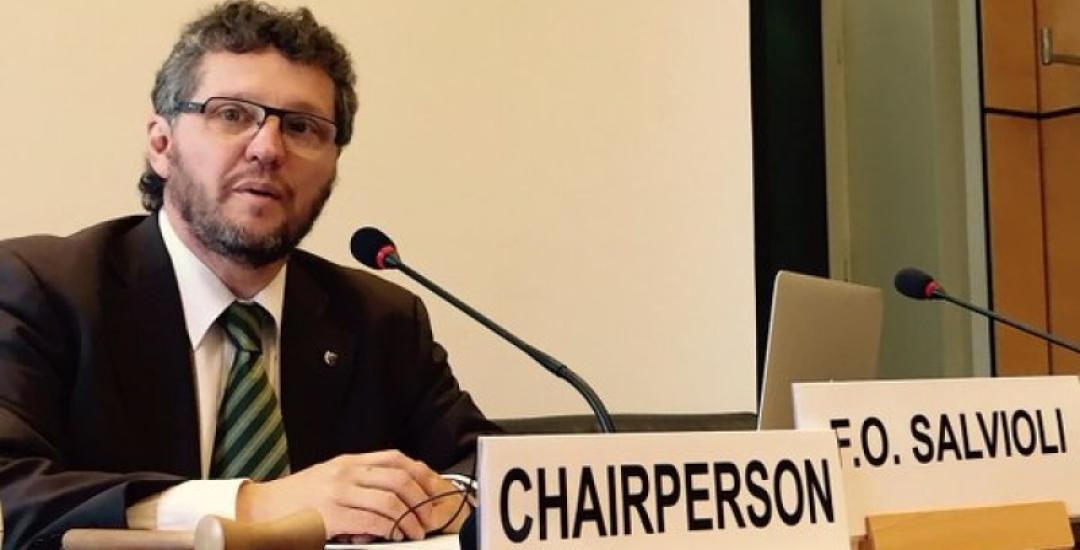
On 5 November 2015, the United Nations Human Rights Committee (HRCtee) published its Concluding Observations following its review of Iraq on 26-27 October 2015. Ahead of Iraq's review, Alkarama had submitted a shadow report to the Committee, denouncing the violations of the right to life, the widespread practice of torture and the lack of observance of fair trial guarantees under the pretext of the fight against terrorism. These concerns were shared by the Committee.
Violations of the right to life
First of all, the HRCtee expressed its concern over "the great number of cases in which the death penalty is imposed and the frequency of its application" as well as "instances in which death sentences have been imposed on the basis of confessions obtained under torture, or in the context of trials that did not meet [fair standards procedures]." Joining Alkarama's recommendation, the HRCtee thus demanded that Iraq seriously considers abolishing the death penalty and acceding to the Second Optional Protocol to the Covenant (OP2 ICCPR) with a view to abolishing the death penalty. The Committee's experts also insisted that, pending abolition, "the death penalty never be imposed in violation of the Covenant, including fair trial procedures."
Widespread use of torture
The Committee then addressed the issue of torture in Iraq, which could easily be explained by the lack of adequate guarantees under Iraqi national law, which guarantees impunity for perpetrators. Hence torture and ill-treatment are often used as a means to obtain confessions that are later used as evidence in court, such as in the case of Riad Al Obeidi − a retired Air Force Brigade pilot abducted by the Military Intelligence in June 2014 and whose "confessions" obtained under torture during his secret detention were used to indict him in two cases. The Committee therefore recommended that torture be defined and criminalised in line with international law, that vigorous steps be taken to prevent torture and ill-treatment and procedures be put in place to ensure that all allegations be investigated and perpetrators brought to justice.
A seriously flawed judicial system
The Committee further expressed its concerns "at reports that violations of fair trial guarantees occur frequently in practice," echoing Alkarama's accusation of such violations, which include mass arrests carried out without warrants, lengthy pre-trial detentions and convictions obtained from either testimonies of secret informants or "confessions" extracted under torture by panels of judges lacking any guarantee of independence. In view of these facts, the Committee urged Iraq to "guarantee that anyone arrested or detained enjoys (...) all fundamental legal safeguards" and "ensure that all judicial proceedings are conducted in full accordance with fair trial guarantees."
Counter-terrorism framework violating human rights
Finally, the Committee also raised its concerns over the fact that Iraqi Anti-Terrorism Law No. 13 of 2005 provides for a broad definition of terrorism susceptible of wide interpretation and the mandatory imposition of the death penalty for a wide range of activities defined as terrorist acts. In its shadow report, Alkarama had criticised in particular the fact that this law is often used to silence dissident voices, such as Ahmad Al Alwani, a prominent Parliamentarian known for his criticism of the Iraqi Prime Minister's policies, who was sentenced to death on 23 November 2014 by the Central Criminal Court of Iraq on the basis of this law. The Committee therefore called upon Iraqi authorities to ensure that counter-terrorism measures, including legislation, fully comply with the Covenant and are never abusively applied.
What is next?
Although Iraq is to submit its next periodic report by 6 November 2018, the UN Human Rights Committee required the State to provide, within a year, relevant information on the implementation of recommendations issued by the Committee on specific issues of priority, which include the death penalty and the prohibition of torture. In particular, the Committee recommended Iraq to:
- Give due consideration to abolishing the death penalty and acceding to the Second Optional Protocol (OP2 ICCPR) to the International Covenant on Civil and Political Rights (ICCPR);
- Ensure that the Criminal Code define and criminalise torture in line with international standards;
- Ensure that all torture allegations are promptly, independently and thoroughly investigated; that perpetrators are brought to justice and that victims receive full reparation;
- Ensure that all detainees are afforded all fundamental legal safeguards and that judicial proceedings are carried out in accordance with fair trial guarantees;
- Address the breadth of the definition of terrorism and ensure that both anti-terrorism legislation and measures are fully compatible with the Covenant.
More on States' reviews by UN Human Rights Committee
According to the International Covenant on Civil and Political Rights (ICCPR), two years after its entry into force, State parties must submit a first report to the Committee explaining the measures taken to implement the Convention, as well as a subsequent report upon request from the Committee. After Iraq submitted the requested report – with a 13-year delay – the country's compliance with the Convention was assessed by the Committee during its 115th session, at the outcome of which the Committee's Concluding Observations were published.
For more information or an interview, please contact the media team at media@alkarama.org (Dir: +41 22 734 1008).
